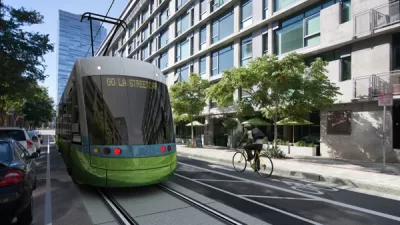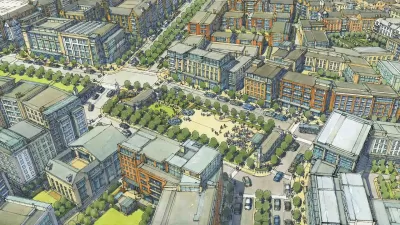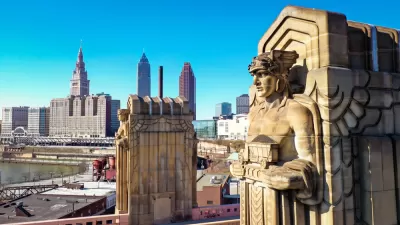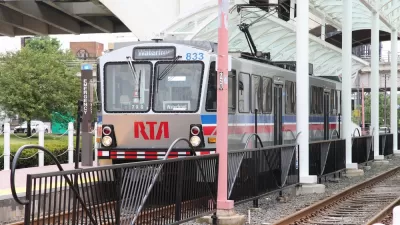David Alpert and Jarrett Walker go head to head debating the merit of streetcar systems in many United States cities and suburbs and their efficiency at creating urban, walkable communities.

Recently, there have been many critics of cities building streetcar systems as a form of mass transit. In a post on CityLab, David Alpert defends the streetcar transit system, stating that while perfect transit with frequent, speedy service is the goal, good transit (despite some of its shortfalls) is still worth supporting.
For Alpert, greater walkability and urbanization is a momentum game, "even an expensive, sub-optimal transit solution—such as a less-frequent streetcar with no dedicated lane —can push the cycle in the right direction. If it draws population and turns car drivers into transit riders even part of the time, then it will build political support for even better transit systems down the road.” Indeed, Alpert goes on to say that these streetcars can be especially helpful for street-space challenged cities, as they "can make up for a lack of lane space with their length, since they can be much longer than buses and carry more people more efficiently."
In a response to Alpert's post, Jarrett Walker of Human Transit attacked the streetcar as not achieving the main goals of mass transit, to provide access to happiness and economic mobility for large numbers of human beings. Walker questions Alpert's main assumptions, asking why should "the 'imperfect good that we start with' be the streetcar instead of a really liberating transit system run, for now, by buses? Why must we start with a hunk of decontextualized technology rather than our liberty and opportunity to go where we want to go?"
Walker's main qualm with Alpert's argument is his argument that streetcars can create the much needed walkable environments, in the United States, as current ones are too expensive for most to live in. Indeed, Walker explains how "[t]he sheer abundance of places that need to be made more walkable is actually the strongest argument against the streetcars-in-traffic campaign. In transit, if it doesn't scale, it doesn't matter. Streetcars-in-traffic have helped enrich a few superdense districts, but they are far too slow, unreliable, and expensive to scale to the size of our urban mobility problem—at least not as long as they remain stuck in traffic... If you want to see how a city massively expands the usefulness of transit, and thus the potential for transit-oriented lives, look to what is happening in Houston. Massive, scalable, high-frequency bus grids that are useful for getting all over the city, and that can be created now."
FULL STORY: Hey, Streetcar Critics: Stop Making 'Perfect' the Enemy of 'Good'

Maui's Vacation Rental Debate Turns Ugly
Verbal attacks, misinformation campaigns and fistfights plague a high-stakes debate to convert thousands of vacation rentals into long-term housing.

Planetizen Federal Action Tracker
A weekly monitor of how Trump’s orders and actions are impacting planners and planning in America.

San Francisco Suspends Traffic Calming Amidst Record Deaths
Citing “a challenging fiscal landscape,” the city will cease the program on the heels of 42 traffic deaths, including 24 pedestrians.

Defunct Pittsburgh Power Plant to Become Residential Tower
A decommissioned steam heat plant will be redeveloped into almost 100 affordable housing units.

Trump Prompts Restructuring of Transportation Research Board in “Unprecedented Overreach”
The TRB has eliminated more than half of its committees including those focused on climate, equity, and cities.

Amtrak Rolls Out New Orleans to Alabama “Mardi Gras” Train
The new service will operate morning and evening departures between Mobile and New Orleans.
Urban Design for Planners 1: Software Tools
This six-course series explores essential urban design concepts using open source software and equips planners with the tools they need to participate fully in the urban design process.
Planning for Universal Design
Learn the tools for implementing Universal Design in planning regulations.
Heyer Gruel & Associates PA
JM Goldson LLC
Custer County Colorado
City of Camden Redevelopment Agency
City of Astoria
Transportation Research & Education Center (TREC) at Portland State University
Jefferson Parish Government
Camden Redevelopment Agency
City of Claremont





























